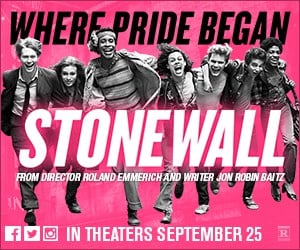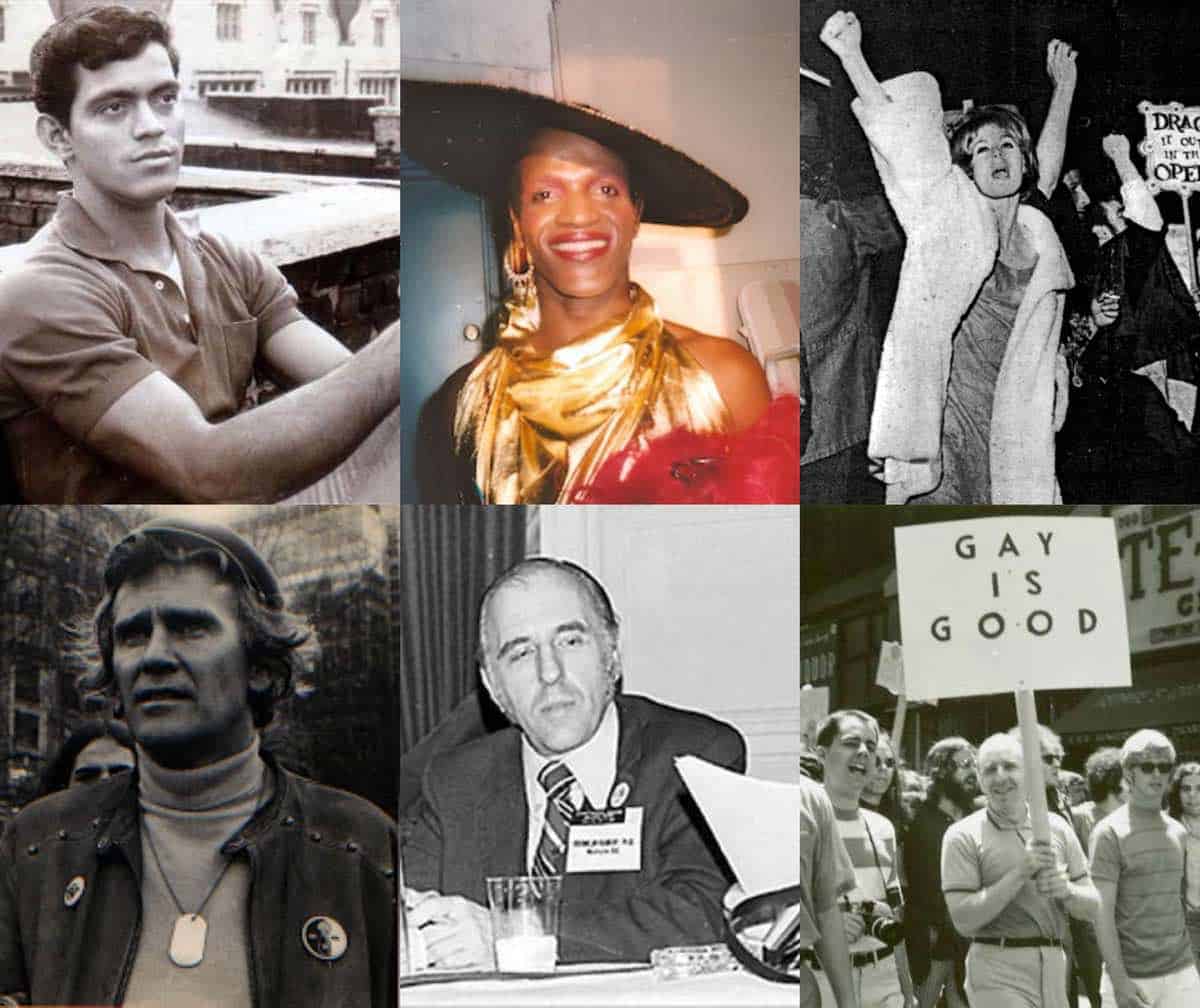
The year is 1969. Homosexual sex is illegal in every state of the union save for Illinois and punishable by up to life in prison. The American Psychiatric Association classifies homosexuality as a mental disorder. Being gay is labeled as “sexual perversion” by the federal government and deemed grounds for dismissal. In New York and across the country, vice squads regularly raid gay bars and bath houses. Police concoct schemes and decoys to entrap and arrest gays. New York City has the largest gay population of any city in the U.S. and The Stonewall Inn is a haven for the city's LGBT population. This is the backdrop against which the historic Stonewall riots would take place.
What began as a routine police raid of a mob-owned gay bar would become a seminal and transformative moment in the history of gay rights. While drag queens and trans women refused to undergo “anatomical inspections” regularly performed by police at such raids, the assembled crowd pushed back against the police incursion into their corner of the city that they called home. Chants of “gay power” echoed in the streets as police attempted to beat back the rioters. The riots would last for 6 days, drawing thousands. Within two years, gay rights groups had formed in every major U.S. city. And one year after the riots, the first Pride celebrations were held in the U.S. to commemorate the night the police raided Stonewall.
Roland Emmerich's new film chronicling those riots (Stonewall, written by Jon Robin Baitz) takes audiences back to the birthplace of Pride and reminds of the unsung heroes that helped transform a simmering fight for gay rights into a full fledged-movement.
Below, check out a few of the heroes from that we look forward to seeing brought back to life.
Marsha P. Johnson (1945-1992)
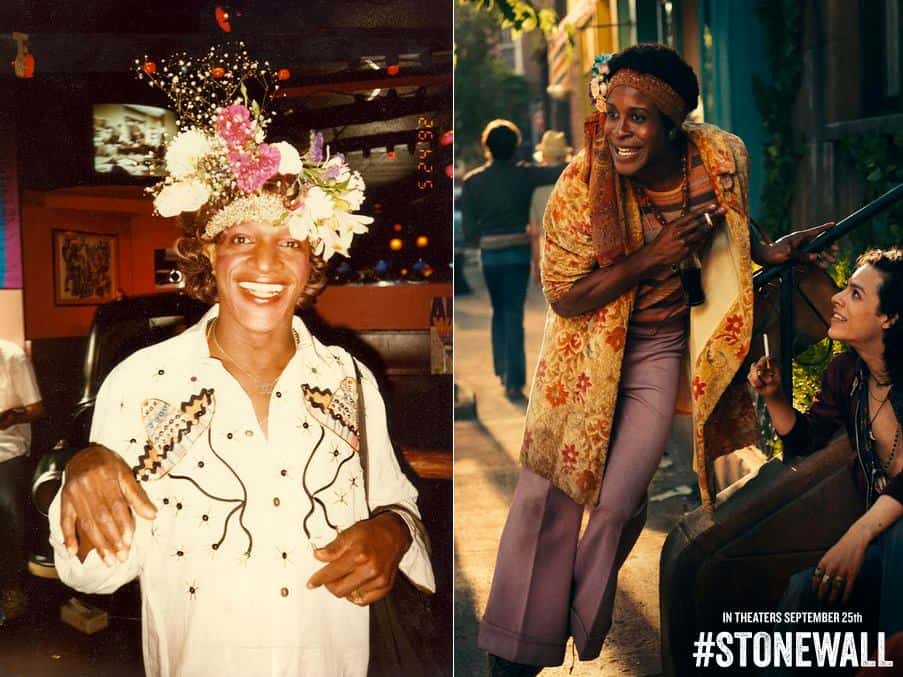
Marsha “Pay No Mind” Johnson is stepping back into the limelight in Stonewall. Credited as one of the first instigators of the Stonewall riots, Marsha was known as the Mayor of Christopher Street, the Queen Mother and a saint to many. According to some, she threw the first brick in the confrontation with police officers on that night in June. Johnson would spend her life devoted to helping others through her activism. Beyond being one of the sparks that lit the fire at Stonewall, she went on to found Street Transvestite Action Revolutionaries (STAR) along with her friend Sylvia Rivera. STAR aimed to feed and shelter homeless queer youth in the city, many of whom were women of color. Said Rivera of STAR's mission, “STAR was for the street gay people, the street homeless people, and anybody that needed help at that time.” Throughout her life, Johnson was regarded as a pioneer and a mother figure to many queer youth who found themselves cast out by society. She was also a member of the Gay Liberation Force that was created in response to the Stonewall riots and later became an influential member of ACT UP.
As a performer, Johnson was a fixture of the West Village, performing with Andy Warhol's drag troupe, Hot Peaches, and delighting audiences with her outrageous ensembles. She also appeared in Warhol's Polaroid photo series Ladies and Gentlemen.
Meet Marsha as she enters the world of Stonewall, below:

Sylvia Rivera (1951-2002) and Ray Castro (1942-2010)
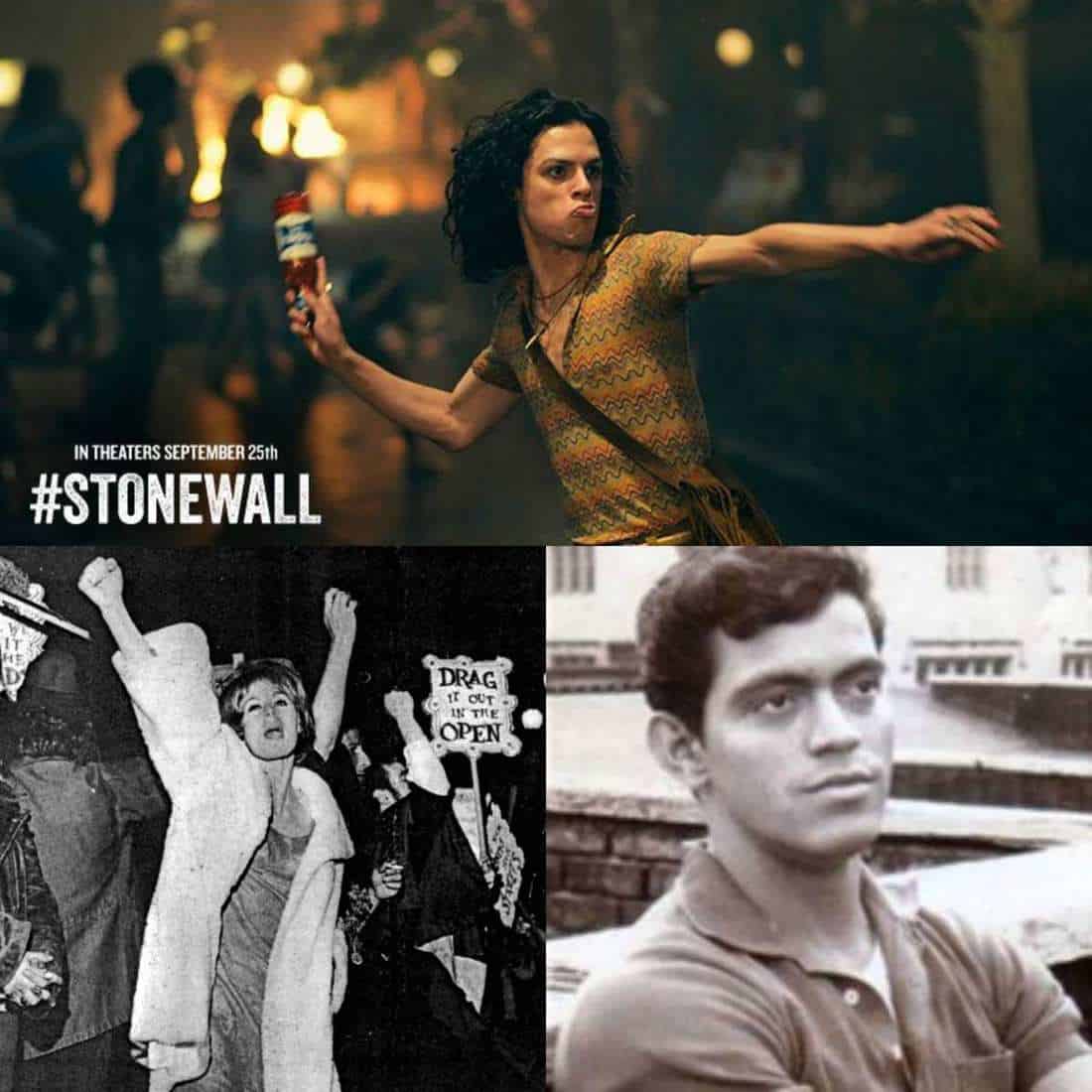
Roland Emmerich's film brings together two unforgettable Stonewall veterans into one character, Ray/Ramona, paying tribute to each's role in the historic riots. As actor Johnny Beauchamp (who plays Ray/Ramona) explains it,
“Ray Castro, who was 27 and a baker, he was Puerto Rican and very much one of the Village Kids. There's also Sylvia Rivera, who I have an affinity for. She was one of the first really prominent trans-activists and she was very close with Marsha P. Johnson. Together they formed the first outreach program for LGBT youth and homeless youth in New York City. Legendary doesn't come close when describing these activists.”
Rivera was only 17 on the night of the Stonewall riots. According to a biographer, Rivera said, “I'm not missing a minute of this. It's the revolution!” Along with Johnson, she is credited as being one of the first to instigate the riots that night. She went on to co-found STAR alongside Johnson, who was a mentor to her.
Castro was one of those arrested at Stonewall. He fought back against police, knocking two of them to the ground. He also paid for the legal defense of a lesbian who was arrested alongside him, true to what his friends knew as his warm-hearted and generous nature. Said Castro of the historic fight for civil rights:
“A lot of people, especially the young ones, have no inkling what Stonewall is. They think Gay Pride is just a big party. None of this would have been possible if it wasn't for 1969. I had no idea that I was going to be involved in history-making. … I would do it all over again.”
Watch this featurette on Ray/Ramona below:

Frank Kameny (1925-2011) and the Mattachine Society
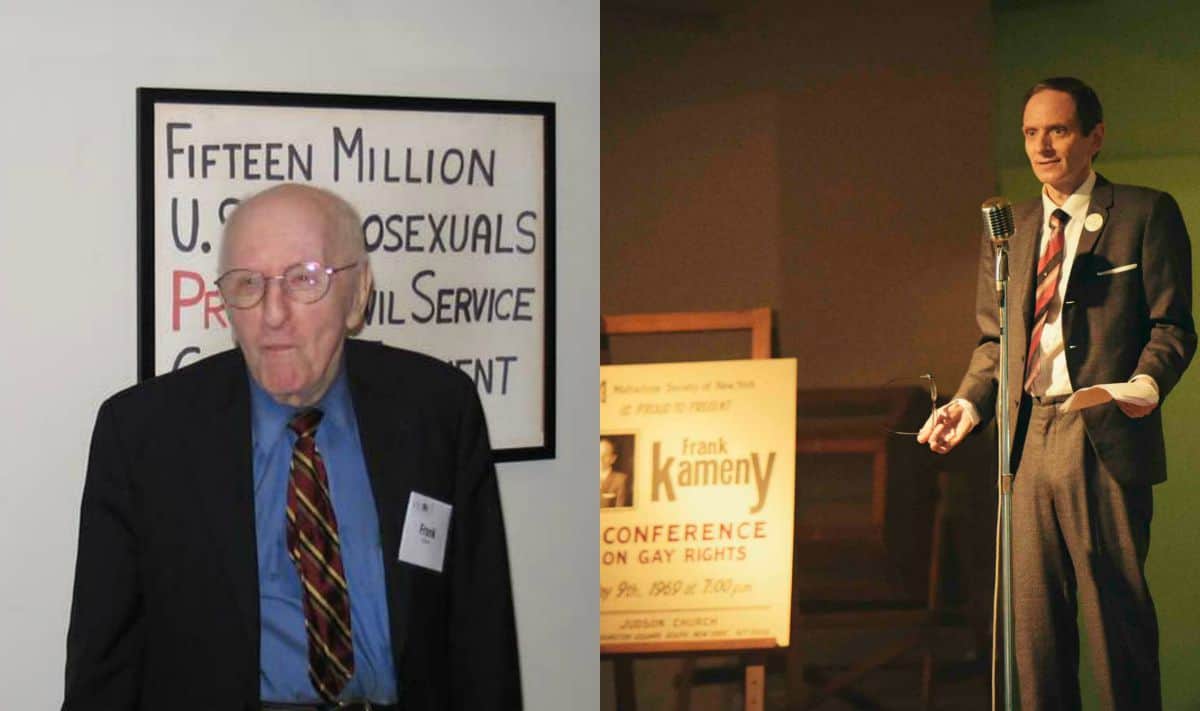
Kameny was at the forefront of the gay rights movement before Stonewall roused a larger reaction to the systematic oppression of gays. Kameny served in World War II, received a doctorate from Harvard in 1956, and was hired by the Army Map Service as an astronomer in 1957. He was fired only 5 months later after an arrest at a gay cruising area came to light. President Eisenhower had signed an executive order in 1953 labeling homosexuality a “sexual perversion” that was cause for dismissal from any government post. Kameny fought his termination all the way to the Supreme Court, which in 1961 declined to hear his case. It was his treatment at the hands of the government that galvanized Kameny to become one of the fathers of the gay rights movement. He also co-founded the Washington, D.C. chapter of the Mattachine Society, one of the first gay rights organizations in the U.S.
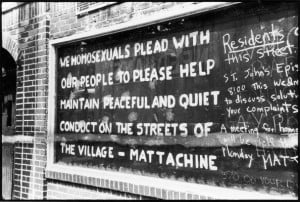
The Mattachine mission was to “eliminate discrimination, derision, prejudice and bigotry” against homosexuality.” In the wake of the Stonewall riots, the Mattachine Society disseminated a newsletter that distilled the reasons why the police raid at Stonewall prompted a riot:
“[The Stonewall Inn] catered largely to a group of people who are not welcome in, or cannot afford, other places of homosexual social gathering… The Stonewall became home to these kids. When it was raided, they fought for it. That, and the fact that they had nothing to lose other than the most tolerant and broadminded gay place in town, explains why.”
The Mattachine would, however, find itself at a crossroads as it began to be viewed by many younger activists as too conservative to achieve gay liberation.
Bob Kohler (1926-2007)
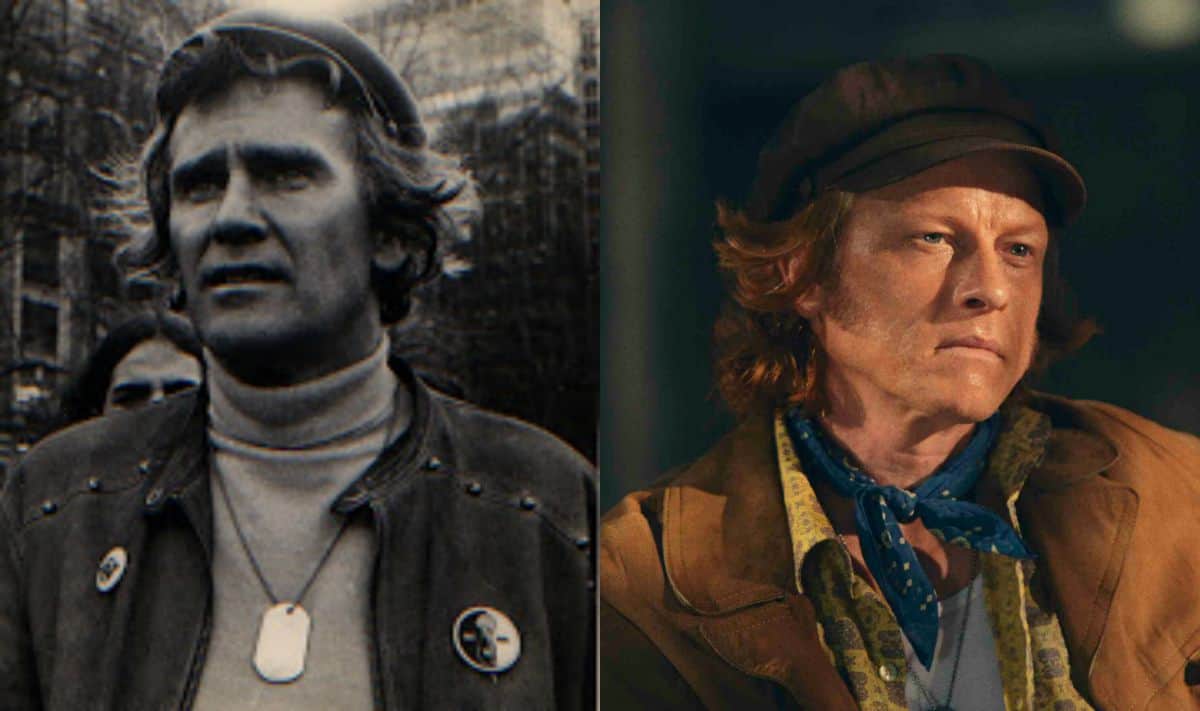
Bob Kohler was considered a father figure to many young trans people on Christopher Street including Marsha P. Johnson and Sylvia Rivera. “He was the epitome of an ally,” Bran Fenner, a friend of Kohler's and a founder of FIERCE!, a group for gay youths of color, told The New York Times of the iconic activist. He added, “He was able to tell us a history that had been denied to us.” For that reason, Kohler had a following of young gay African-Americans and Latinos who looked to him as a role model, mentor, and friend. An advocate not only for gay rights but also for trans rights, queer youth, HIV/AIDS education and prevention, and issues of race, Kohler seemed to embody Martin Luther King, Jr.'s maxim that “injustice anywhere is a threat to justice everywhere.” Said Kohler after being arrested in 1999 for protesting the police shooting of African immigrant Amadou Diallo:
“I do not equate my oppression with the oppression of blacks and Latinos. You can't. It is not the same struggle, but it is one struggle. And, if my being here as a longtime gay activist can influence other people in the gay community, it's worth getting arrested.”
It was on the second night of the Stonewall riots that Bob and others held the first meeting of the Gay Liberation Front. Bob is often credited for bringing a more militant approach to the gay rights movement.
Seymour Pine (1919-2010)

While not a hero of the Stonewall riots, Seymour Pine played a significant role as the deputy investigator who led the raid on the Inn. Speaking at an event in 2004, Pine remarked that the NYPD “certainly were prejudiced” against gays, “but had no idea about what gay people were about.” At the same event, he apologized for the raid after a member in the audience called on him to do so. And while Pine admits prejudice was prevalent on the police force, he also said that he believes “not liking gay people” didn't have anything to do with why the raid was initially carried out. David Carter, author of Stonewall: The Riots That Sparked the Gay Revolution, said of Pine,
“There's been a stereotype that Seymour Pine was a homophobe. He had some of the typical hang-ups and preconceived ideas of the time, but I think he was strictly following orders, not personal prejudice against gay people.”
Pine also reportedly told Carter, “If what I did helped gay people, then I'm glad”.
If you haven't already, check out the trailer for Stonewall below. The film hits theaters September 25.

Stonewall stars Jeremy Irvine, Jonny Beauchamp,Caleb Landry Jones, Joey King, Karl Glusman, Vlademir Alexis, Alexandre Nachi, Matt Craven, Jonathan Rhys Meyers, and Ron Perlman.
